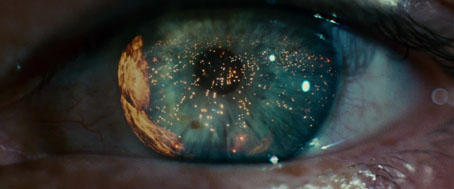
Given the chronology this should really be “Metropolis vs. Blade Runner” but most people are more familiar with Ridley Scott than Fritz Lang so I’ve let Blade Runner determine the order of the shots.
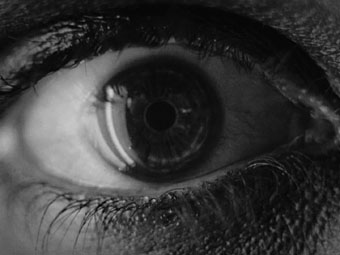
These shot comparisons aren’t exactly news but they’ve become more evident since rewatching the restored print of Metropolis. Among other things, the rediscovered footage yielded a scene with a character reading a newspaper that’s a match for Harrison Ford’s first appearance. The similarities extend, of course, to the thematic: futuristic megacities, flying vehicles, the creation of artificial human beings. Both films also end with a struggle to the death on the roof of a building. The cinematographer for Blade Runner was Jordan Cronenweth; Metropolis was the work of Karl Freund, Günther Rittau and Walter Ruttmann.
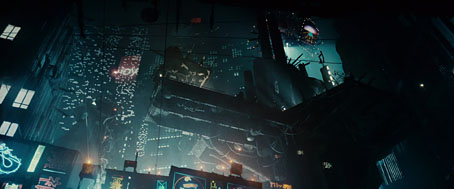
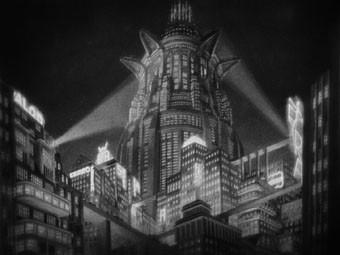
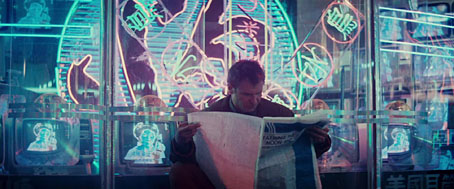
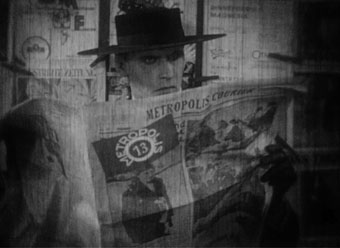
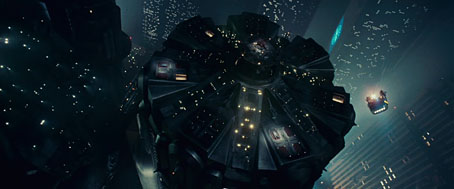
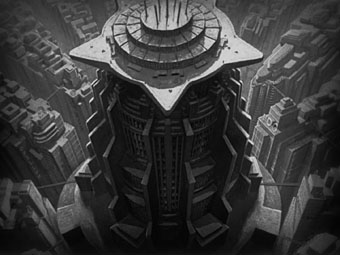
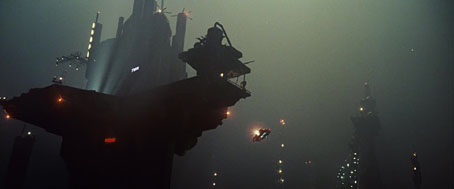
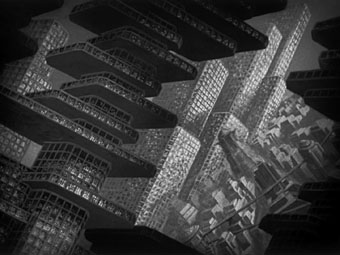
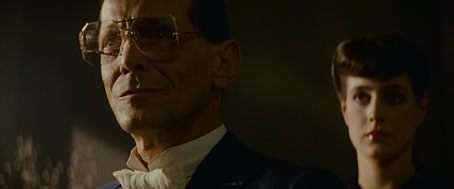
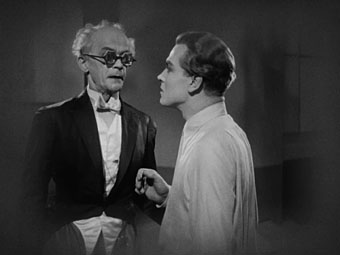
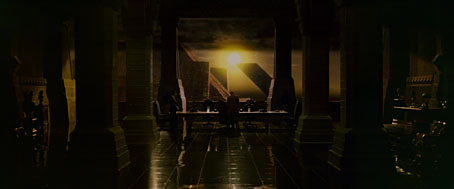
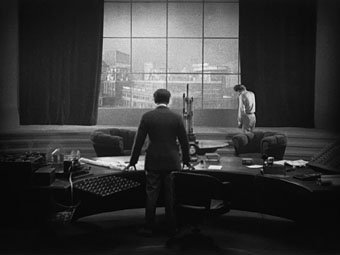
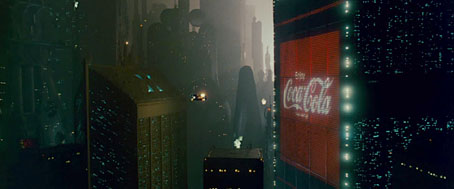
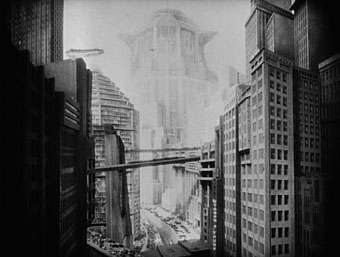
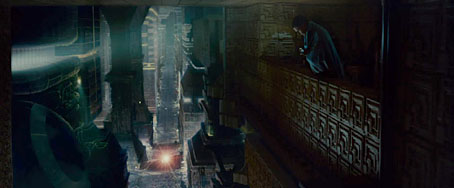
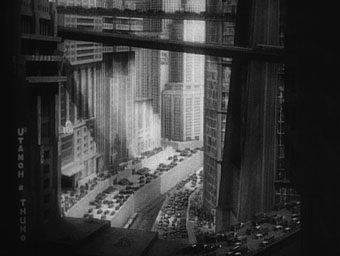
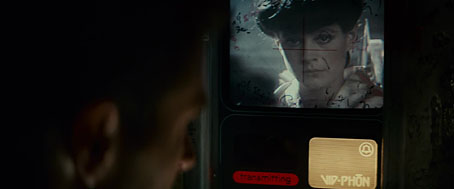
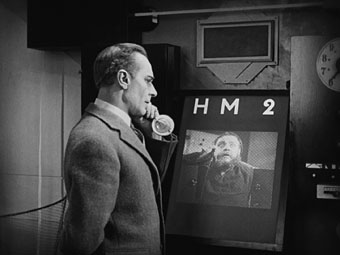
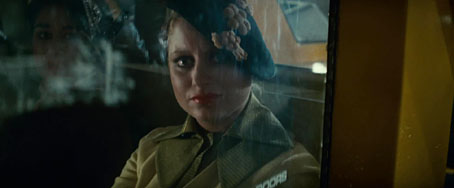
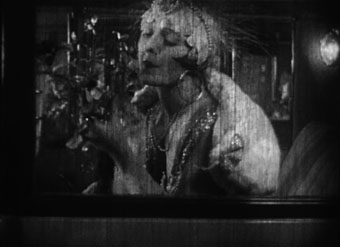
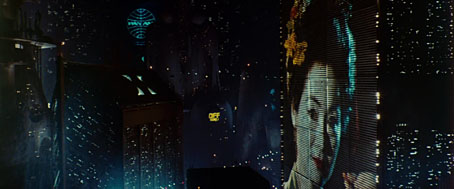
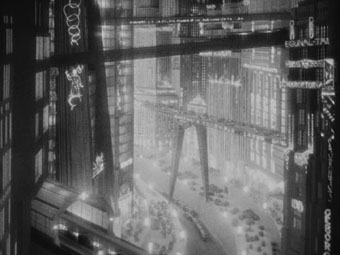

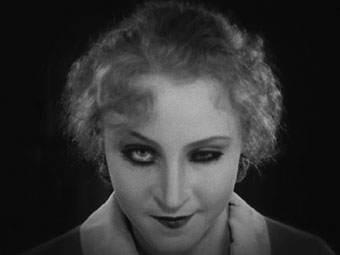
Previously on { feuilleton }
• The Metropolis of Tomorrow by Hugh Ferriss
• Metropolis!
• The Bradbury Building: Looking Backward from the Future

That’s Fritz Rasp reading the newspaper in “Metropolis”. Both films are SF classics, but of course Fritz Lang’s movie was one of the sources for Blade Runner, visually speaking, not to mention William Burrough’s Interzone (and Scott thanks him at the final credits). A lot of things which came after 1926, and not only in terms of movies, were influenced by “Metropolis”.
Burroughs had to be thanked at the end because the title Blade Runner was his own, from an unrelated work. Paul Sammon’s book about the making of the film says that the greatest influence was Ridley Scott’s enthusiasm for the comics by Moebius, Bilal and others running in Heavy Metal at the time. Metropolis has a peripheral influence but without Heavy Metal (and Tokyo) the film wouldn’t look the way it does.
“…more familiar with Ridley Scott than Fritz Lang..”
Sad. I have to confess I’ve never been a big fan of BLADERUNNER. It is visually stylish and has a great soundtrack but that’s not enough for me. I find it all rather hollow. I think it’s because I’m such a fan of the ANDROIDS novel. Scott dumped all the interesting Dickian aspects of the novel and turned it into a shoot’em up.
I don’t worry about the difference between film and novel, they’re so far apart they’re almost separate works. Dick himself was thrilled by what he saw of Blade Runner so I don’t think he was too worried either. The thing with Ridley Scott is that he’s always been more of a visual stylist than a dramatist, three of his early films are set in self-contained fantastic worlds. Critics disliked Blade Runner in 1982 because they were judging it on the story level (and it doesn’t help that it was hacked around beforehand) and seemed unaware that everyone who liked it was responding to the future city, the music, decor, Rutger Hauer, etc. 2001: A Space Odyssey didn’t contribute anything to the evolution of written SF but Blade Runner helped boost the development of cyberpunk. That’s a rare thing; science fiction in film and TV is usually running decades behind its written equivalents.
Indeed, Heavy Metal and Moebius (Tomorrow City, specially) are two visual influences on the film. Although it has little to do with the original novel by PK Dick, I think Blade Runner is a great classic of the SF of the 80’s, just as Metropolis was in the 20’s.
You cats must not have caught Moroder’s version of Metropolis; the best sci-fi ever.
The Moroder version is on the recent double-disc set from Eureka. I tried watching it again; I still find it awful but at least today you have a choice of viewing. Much as I respect Moroder for things like I Feel Love (a masterpiece) and the Cat People soundtrack, the print of his version is terrible and rendered muddy and indistinct by the tinting. As to the music… Metropolis should be soundtracked by Kraftwerk or Propaganda if you’re using a pop score, not the awful stuff Moroder used which always seemed like a sop to tasteless US audiences.
I agree with John about the Moroder version. Well, maybe one of these days someone will bring Metropolis back, with an electronic score…
I usually watch it with the sound down and CDs playing. Every so often I think I ought to try and make a mix of suitable music that matches the film.
Like I needed any kind of excuse to watch these movies back-to-back, but thanks for giving me one :)
Yeah, it’s quite a good idea, adding a suitable soundtrack…